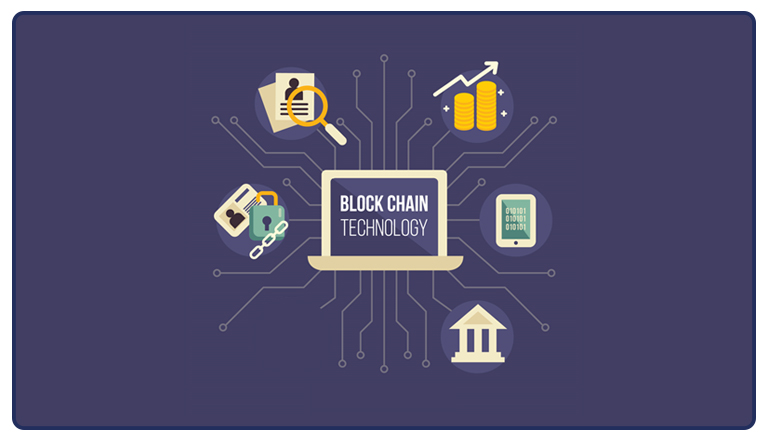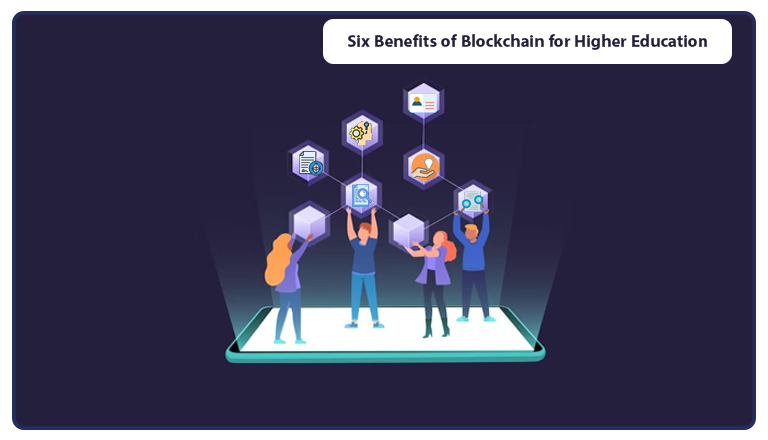Since the emergence of Blockchain in 2008, the technology has gained adoption in several sectors, such as finance, supply chain, and tech. The situation is different in the higher education sector, though, where it has taken Blockchain significantly more time to gain adoption, for reasons not entirely unjustified. Despite the slow start, Blockchain adoption has been recently gaining momentum in the higher education sector.
In this blog post, we’ll explore what Blockchain is, its different use cases in higher education, its current adoption, and the challenges facing its wider-scale implementation.
What is Blockchain?
Blockchain is a technology that is used to securely store and track transactions. The Blockchain starts with a transaction that is sent to a decentralized network of computers, which verify the authenticity and validity of the transaction based on agreed-upon rules. Accordingly, the transaction gets securely stored in the network with a clear time stamp.
A list of successive transactions creates a block, and a list of successive verified blocks creates the Blockchain. One of the greatest benefits of this mode of verifying and storing data is that it is decentralized and immutable. In other words, once the transaction is stored in the Blockchain, there is no deleting or tampering with it.

The Uses of Blockchain in Higher Education
The decentralization, security, and immutability of data stored in the Blockchain help it present the higher education sector with many benefits that can promise to usher in the age of University 2.0. Here are some of the top uses of Blockchain in higher education.
1. Tamper-Free Credentials
The process of issuing and verifying university credentials is often time-consuming and comes with high overhead to both universities and employers. Even worse, they sometimes find themselves presented with forged credentials which may sometimes go unnoticed, risking giving opportunities to undeserving individuals. With Blockchain, the immutability of the recorded transactions makes the digital credentials stored in the chain tamper-free and saves employers and universities a huge administrative hassle.
2. Life-Long Learning Support
One of the key benefits of Blockchain is the multi-user experience that the platform enables. By alternating between public and private keys, students can choose who can simply view their credentials and who can add to them. This makes possible the creation of a digital repository that stores all of the student’s credentials, obtained from different institutions, in one place and enables the tracking of the student’s learning journey long after their university graduation. For example, in the United States, the Massachusetts Institute of Technology (MIT) has pioneered the use of blockchain-based credentialing. Working with a company called Learning Machine, MIT has developed “Blockcerts,” a technology for creating, issuing, viewing, and verifying blockchain-based certificates along the student’s lifelong learning journey.
3. Smart Contracts
The decentralization and the immutability of the chain also enable the automatic enforcement of contracts. By leveraging smart contracts, higher educational institutions can automate the tuition payment and financial aid processes. This would not only save universities time but also guarantee transparency and eliminate any fraud opportunities. According to a paper published by Oracle, a few higher education institutions worldwide have already started accepting Bitcoin in their campus stores such as MIT and the Georgia Institute of Technology.
4. Intellectual Property (IP) Protection
One of the key challenges that the higher education sector is facing in the Web 2.0 world is the possibility of intellectual property infringement. With users being able to post and share research, papers, and books anywhere at any time, Blockchain technology offers a viable solution to intellectual property disputes. Since all data stored is time-stamped and can be clearly tracked to its original user, the intellectual property generated by higher educational institutions can be protected and secured.
5. Scientific Research Integrity
Higher educational institutions continue to find their job of guaranteeing the integrity of research work presented to them challenged as more information-sharing technologies emerge. Blockchain, on the other hand, is one of those technologies that can greatly assist university faculty in verifying the source of research and the authenticity of its origin, thus, ensuring scientific research integrity.
6. New Studies & Research Frontiers
With Blockchain deemed by Holon IQ as one of the four breakthrough technologies in the system of education, Blockchain is now the subject of many courses and research projects in higher education institutions. In fact, a recent study found that 42% of the world’s top 50 universities now offer at least one course on cryptocurrency or Blockchain. Moreover, as the importance of Blockchain as an emerging technology rises, it is expected that full university majors will be dedicated to the study of Blockchain and its applications.
Challenges to Blockchain Adoption in Higher Education
Despite the huge positive impact the technology presents, there are still few challenges that continue to make it hard for Blockchain to go mainstream in the higher education sector.
– Legal & Regulatory Challenges
The international nature of Blockchain transactions makes them impossible to be governed by the laws and regulations of one jurisdiction alone. This gives rise to the need for a better, more internationally coordinated effort to regulate the technology.
– Training Challenges
Due to its multiple uses and access keys, users expected to gain the most benefit from the technology still require some level of training to be able to fully realize its benefits. This prerequisite poses a challenge to its wider-spread adoption. Moreover, there is still not sufficient awareness about the technology and its uses among many key players in the higher education sector. In fact, research published in the European Journal of Contemporary Education shows that when asked if they know about Blockchain technology, 43% of Russian higher educational institutions’ representatives did not know what it was.
Transition to Blockchain in Your Higher Education Institution
Despite these challenges, Blockchain is still expected to be centerstage in the technological infrastructure of the university of the future. If you’re interested in knowing more about how you can make the transition to Blockchain or are interested in viewing a live demo, you can check out the Blockchain solutions for education by our partner, Educhain.
Educhain has been the Blockchain platform of choice for 5 out of the 6 universities selected as part of Phase I of the UAE’s University E-Attestation Service roll-out. If anyone can help you understand how Blockchain can benefit your institution, it is them. Start your journey with Blockchain now.


